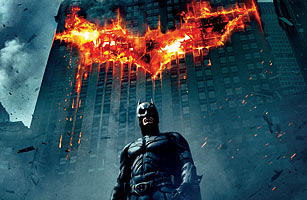
Once upon a time, kiddies, superheroes not only came from comic books, they were comic, intentionally or otherwise — in hackwork Saturday-matinee serials or in the facetious 1960s emanation of Batman. (POW! KRRRACK! Giggle.) But comic books matured into graphic novels; the superhero's world grew darker, his adversaries more frightening, his own soul scarred with psychic wounds. The movie superhero, whether spawned by comics or kid lit, followed that template. Harry Potter, Frodo and Batman as reimagined by Christopher Nolan had missions grand enough and personalities complex enough to carry them through multi-film sagas; there was nothing comic about them. Same with the Marvel heroes, those mutant supercreatures of the Spider-Man and X-Men series.
These characters were at the heart of the decade's killer franchises; worldwide, they accounted for seven of the ten top-grossing films. (The other three — two installments of Pirates of the Caribbean and the second Shrek cartoon — had a giddier action-comedy tone.) Beyond box office considerations, the LOTR and Potter films were damn fine works by any standard, filling the vacuum left by Hollywood's reluctance to make big dramatic films about visionary adventurers. Superhero movies are the epics of our time. Lawrence of Arabia has relocated to Gotham, and his name is Bruce Wayne.